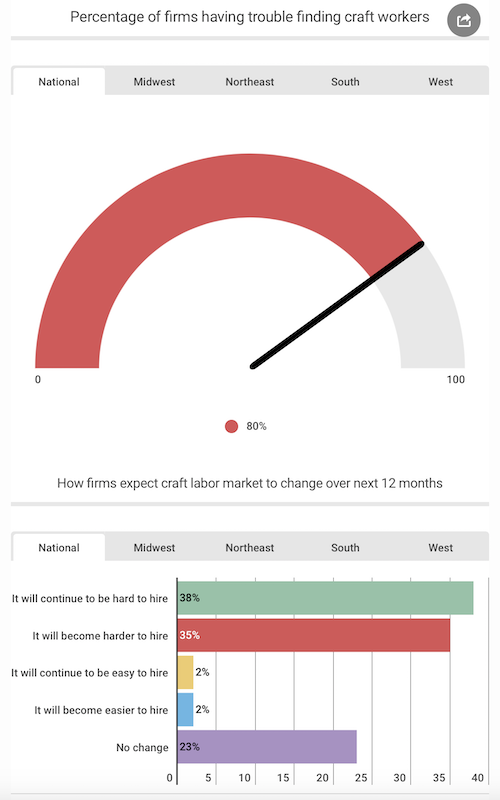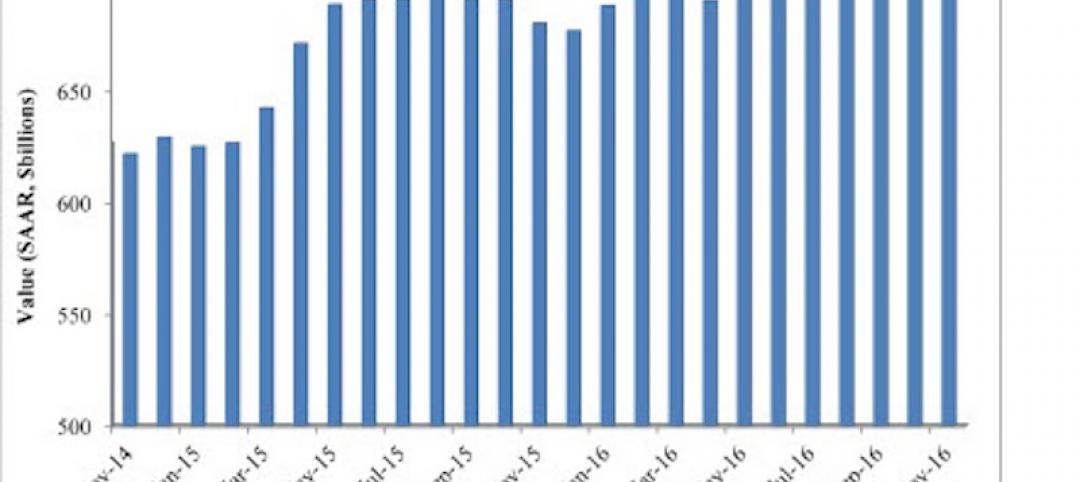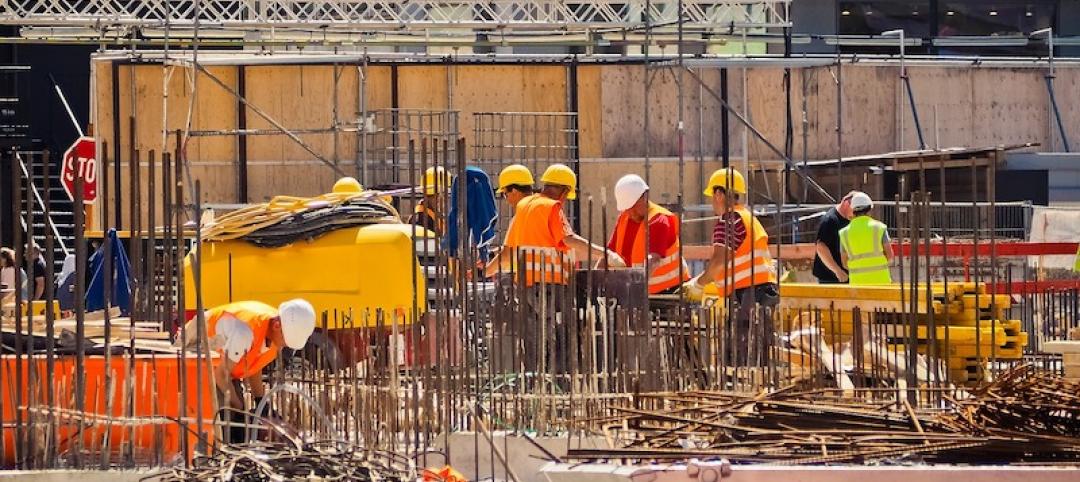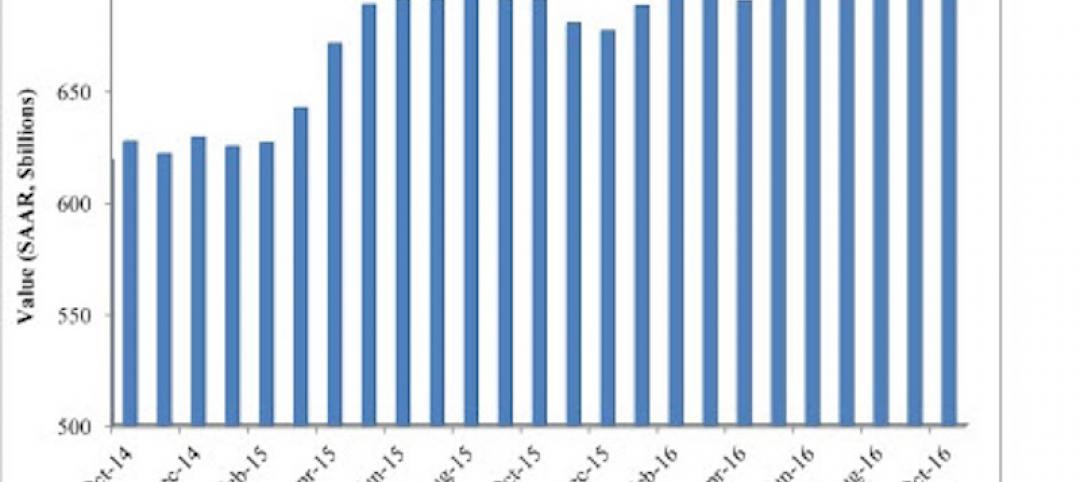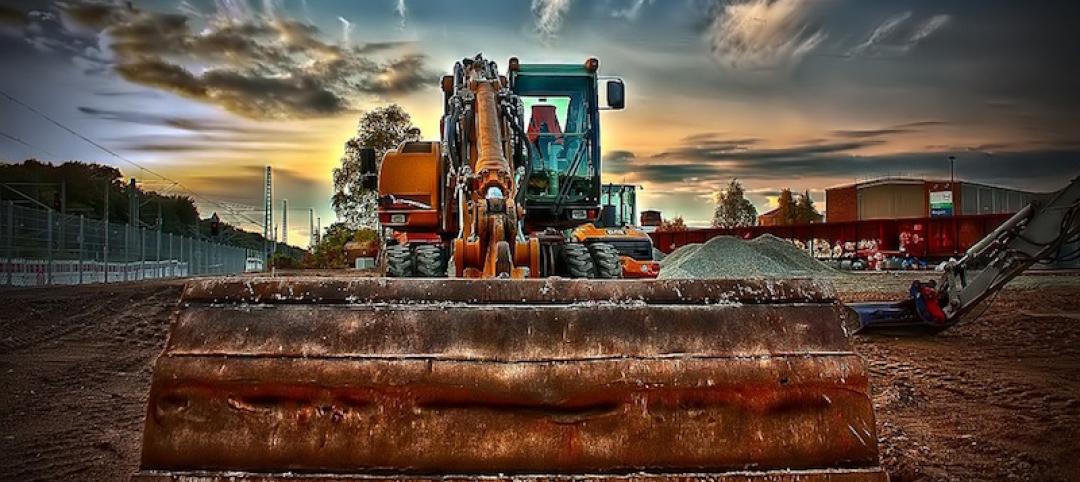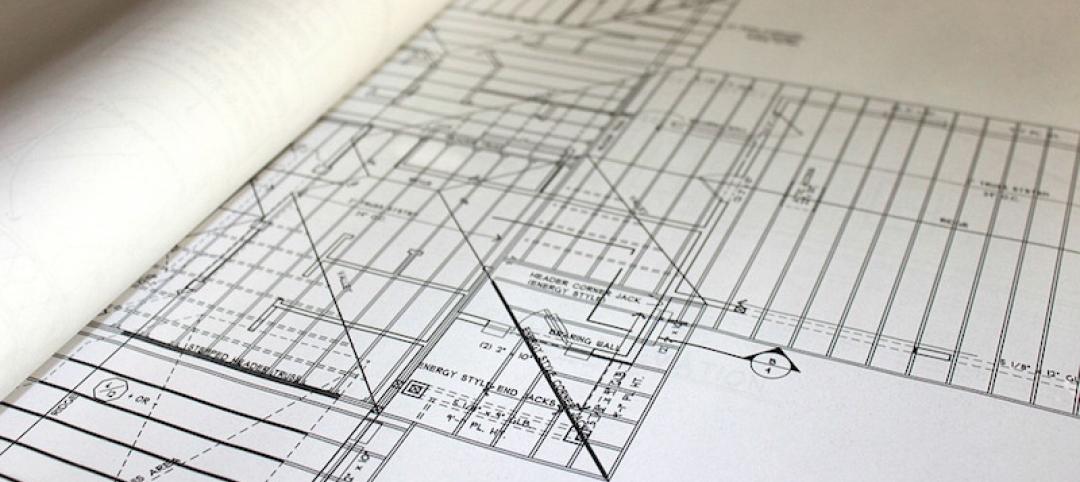You’d have to be living on the moon not to know that hourly construction workers are getting scarcer. But the magnitude of this labor shortage is writ large in a recent survey, released this week by Autodesk and the Associated General Contractors of America (AGC), which found that 80% of 1,935 respondents in 23 states report having a hard time filling hourly craft positions.
More concerning are the findings that nearly three-quarters of the construction firms polled don’t expect shortages to abate over the next year, and could, in fact, get worse. And the training and skill level of the labor that is available are deemed “poor” by 45% of those polled.
It remains to be seen whether and how soon the industry can dig itself out of this hole. To attract workers, two-thirds of the survey’s respondents say they’ve boosted base pay rates, and 29% are offering incentives and bonuses. A longer-term play finds nearly half of the firms polled—46%—having launched or expanded their training programs. Half of the respondents also say their companies are involved in career-building programs.
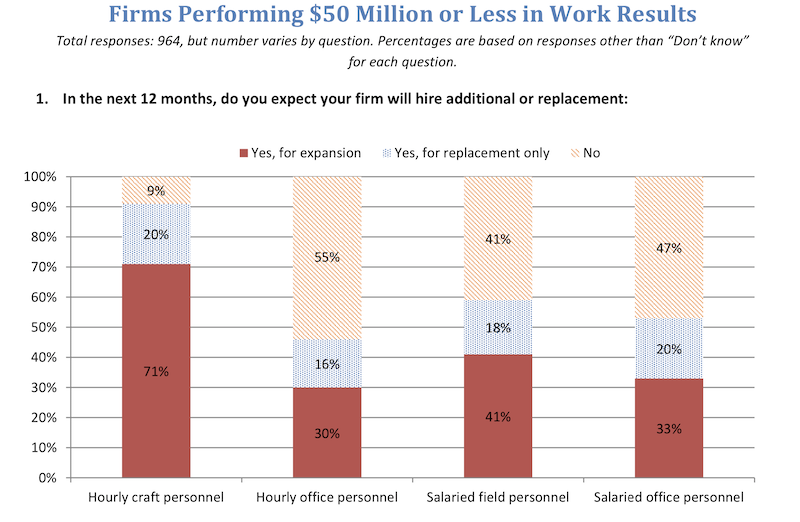
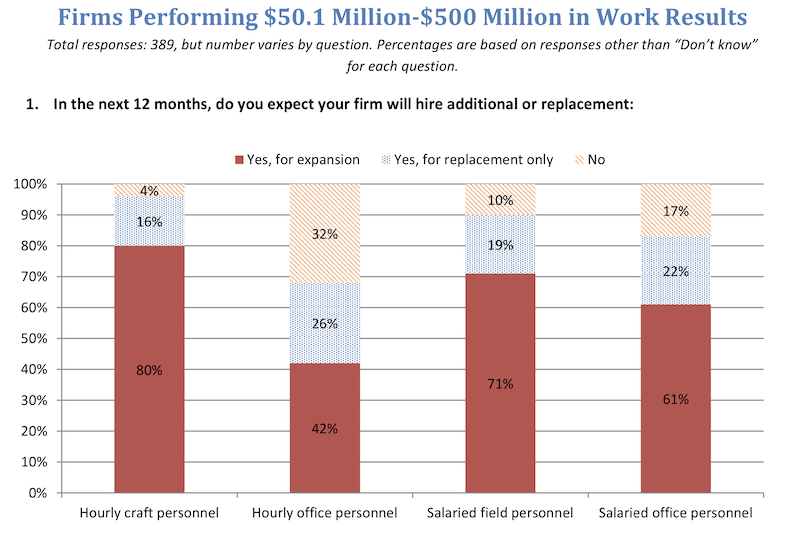
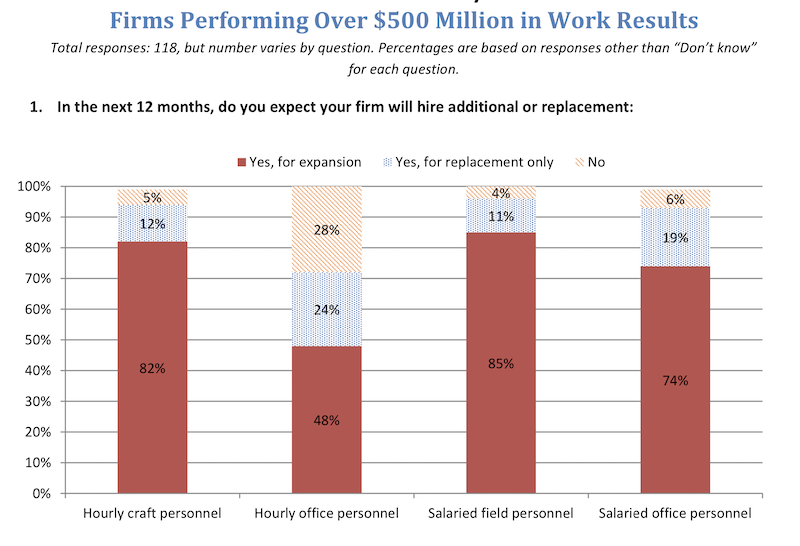
Labor shortage problems are hitting construction firms of all sizes, and are having a deleterious effect on companies' abilities to expand their businesses. Image: AGC-Autodesk
The labor shortage is shoving a perennially tech-phobic construction industry into the 21st Century. One-quarter of respondents are using tools like drones, 3D printers, and robots. Another 23% are relying on lean construction techniques, BIM, and prefabrication.
The disruption being caused by labor shortages is also manifesting itself in costlier projects that take longer to complete. Forty-four percent of the firms polled are increasing their construction prices, and 29% are factoring longer lead times into their bids.
“Workforce shortages remain one of the most significant threats to the construction industry,” said Stephen E. Sandherr, AGC’s chief executive officer. “However, construction labor shortages are a challenge that can be fixed, and this association will continue to do everything in its power to make sure that happens.”
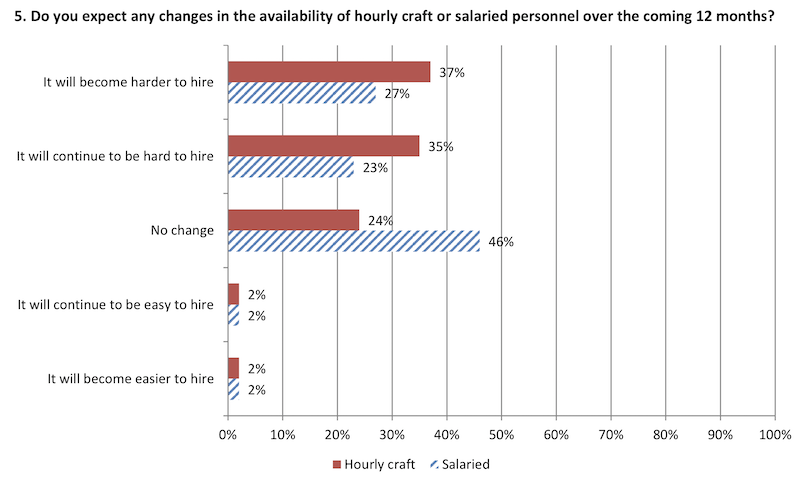
This chart, based on 964 responses from firms with $50 million or less in work results, shows how contractors are struggling to find salaried, as well as hourly, workers. Image: AGC-Autodesk
Over the past two years, AGC has secured $145 million in federal funding for career and technical education programs. It is urging the federal government to increase that funding, and to allow construction students to qualify for federal Pell Grants, which would make it easier for firms to establish apprenticeship programs.
More quixotic—given the Trump Administration’s virulent anti-immigration stance—is AGC’s call for the government to let more immigrants into the U.S. to work construction.
Related Stories
Market Data | Jan 9, 2017
Trump market impact prompts surge in optimism for U.S. engineering firm leaders
The boost in firm leader optimism extends across almost the entire engineering marketplace.
Market Data | Jan 5, 2017
Nonresidential spending thrives in strong November spending report
Many construction firms have reported that they remain busy but have become concerned that work could dry up in certain markets in 2017 or 2018, says Anirban Basu, ABC Chief Economist.
Market Data | Dec 13, 2016
ABC predicts modest growth for 2017 nonresidential construction sector; warns of vulnerability for contractor
“The U.S. economy continues to expand amid a weak global economy and, despite risks to the construction industry, nonresidential spending should expand 3.5 percent in 2017,” says ABC Chief Economist Anirban Basu.
Market Data | Dec 2, 2016
Nonresidential construction spending gains momentum
Nonresidential spending is now 2.6 percent higher than at the same time one year ago.
Market Data | Nov 30, 2016
Marcum Commercial Construction Index reports industry outlook has shifted; more change expected
Overall nonresidential construction spending in September totaled $690.5 billion, down a slight 0.7 percent from a year earlier.
Industry Research | Nov 30, 2016
Multifamily millennials: Here is what millennial renters want in 2017
It’s all about technology and convenience when it comes to the things millennial renters value most in a multifamily facility.
Market Data | Nov 29, 2016
It’s not just traditional infrastructure that requires investment
A national survey finds strong support for essential community buildings.
Industry Research | Nov 28, 2016
Building America: The Merit Shop Scorecard
ABC releases state rankings on policies affecting construction industry.
Market Data | Nov 17, 2016
Architecture Billings Index rebounds after two down months
Decline in new design contracts suggests volatility in design activity to persist.
Industry Research | Nov 8, 2016
Austin, Texas wins ‘Top City’ in the Emerging Trends in Real Estate outlook
Austin was followed on the list by Dallas/Fort Worth, Texas and Portland, Ore.


